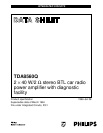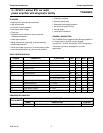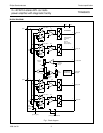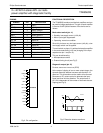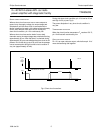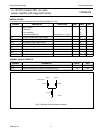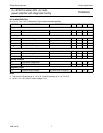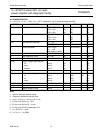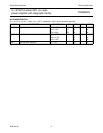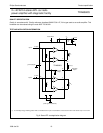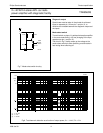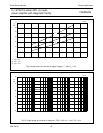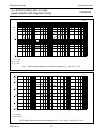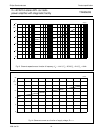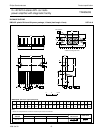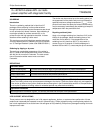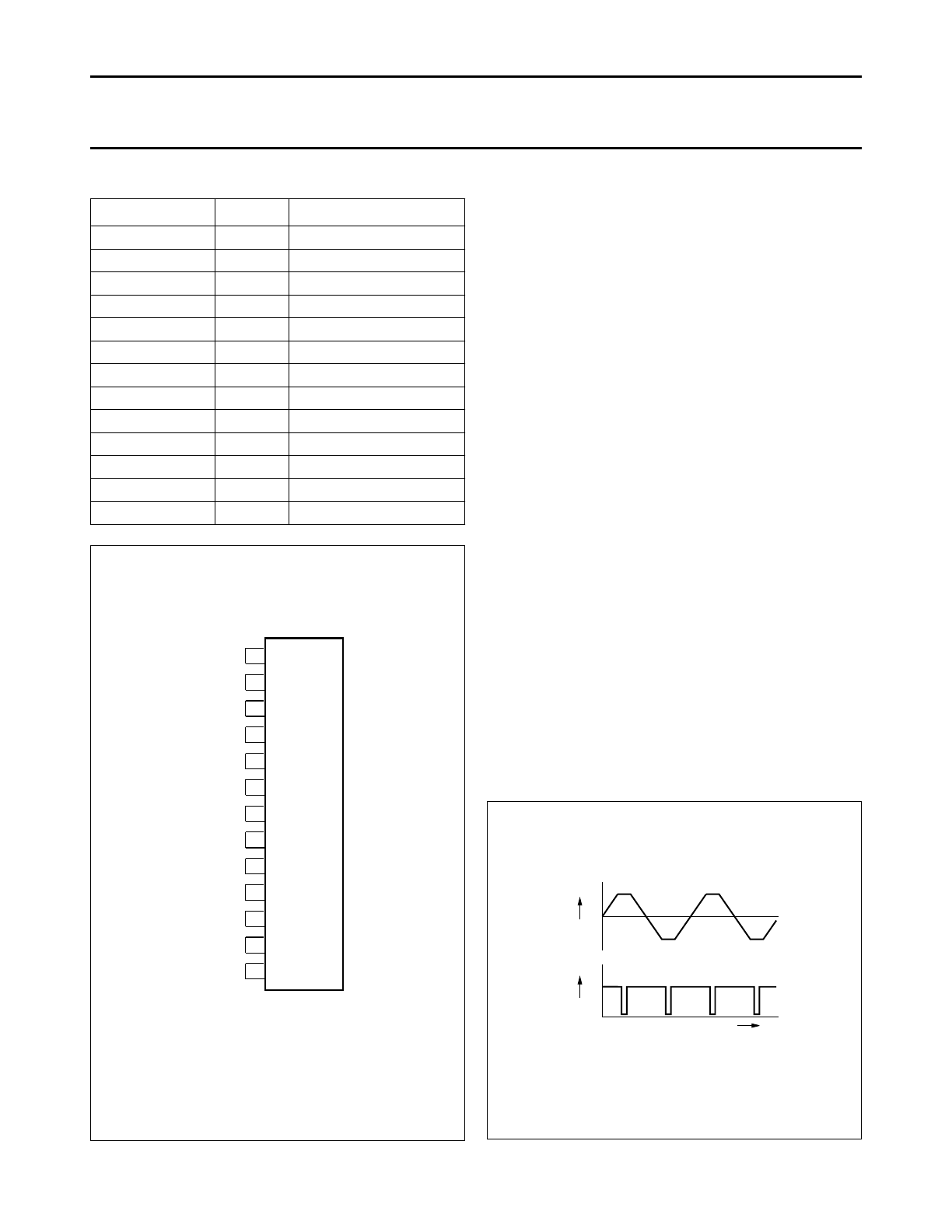
1996 Jan 08 4
Philips Semiconductors Product specification
2 × 40 W/2 Ω stereo BTL car radio
power amplifier with diagnostic facility
TDA8560Q
PINNING
SYMBOL PIN DESCRIPTION
IN 1 1 input 1
GND(S) 2 signal ground
V
P1
3 supply voltage 1
OUT 1A 4 output 1A
GND1 5 power ground 1
OUT 1B 6 output 1B
OUT 2A 7 output 2A
GND2 8 power ground 2
OUT 2B 9 output 2B
V
P2
10 supply voltage 2
MODE 11 mode switch input
V
DIAG
12 diagnostic output
IN 2 13 input 2
Fig.2 Pin configuration.
1
2
3
4
5
6
7
8
9
10
11
12
13
MEA855 - 1
TDA8560Q
IN 1
GND(S)
V
P1
OUT 1A
GND1
OUT 1B
OUT 2A
GND2
OUT 2B
V
P2
MODE
IN 2
DIAG
V
FUNCTIONAL DESCRIPTION
The TDA8560Q contains two identical amplifiers and can
be used for bridge applications. The gain of each amplifier
is fixed at 40 dB. Special features of the device are as
follows.
Mode select switch (pin 11)
• Standby: low supply current (<100 µA)
• Mute: input signal suppressed
• Operating: normal on condition.
Since this pin has a very low input current (<40 µA), a low
cost supply switch can be applied.
To avoid switch-on plops, it is advised to keep the amplifier
in the mute mode during ≥100 ms (charging of the input
capacitors at pin 1 and pin 13).
This can be achieved by:
• Microprocessor control
• External timing circuit (see Fig.7).
Diagnostic output (pin 12)
D
YNAMIC DISTORTION DETECTOR (DDD)
At the onset of clipping of one or more output stages, the
dynamic distortion detector becomes active and pin 12
goes low. This information can be used to drive a sound
processor or DC volume control to attenuate the input
signal and thus limit the distortion. The output level of
pin 12 is independent of the number of channels that are
clipping (see Fig.3).
Fig.3 Distortion detector waveform.
handbook, halfpage
V
0
V
P
V
O
0
t
MGA721
12



